DUBAI: The world will always remember Edward Said as a man of letters with a wide range of interests.
Born to Palestinian parents in British-ruled Jerusalem in the 1930s, he became an internationally recognized author, critic, professor, public thinker, gifted pianist, founding figure of postcolonial studies and lifelong proponent of the Palestinian cause.
However, in the eyes of his only daughter, the actress, playwright and author of “Looking for Palestine,” Najla Said, he was simply “Daddy.”
Her earliest memory of her father shows just how attached she was to him from a very young age.
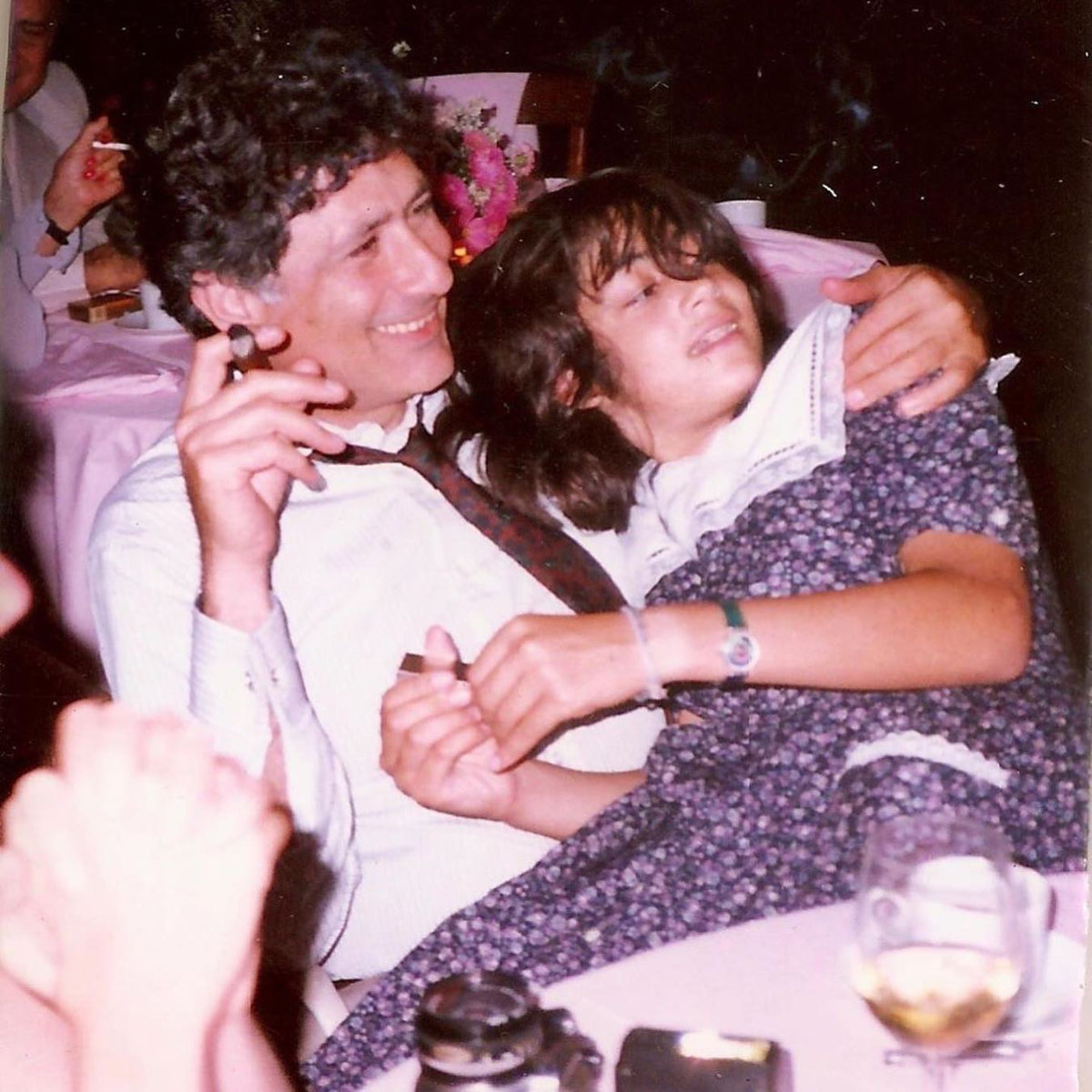
Young girl Najla and her "best friend" dad. (Supplied)
“I remember being about two or three years old and I had a bloody nose. My mother told me to lie down and hold my nose, but I remember when my dad came home from work, I jumped up, shouting ‘Daddy!’ and ran toward him while blood was running down my nose,” she told Arab News in a video interview. “I was so excited that he was home. I loved him very, very much.”
Najla Said grew up in the Upper West Side of Manhattan, where she faced a personal identity crisis as an Arab-American, feeling like an outsider at a posh all-girls school that she said lacked diversity.
“I was never around people like me and it was very confusing,” she said. “My friends were all blonde, they had tiny little bones, and they all seemed to know each other from their summer houses. I spent a lot of my childhood in Lebanon, going back and forth before I started school, and I came from this enormous, wonderful family that I loved but as soon as I went to school, I realized that somehow I was different.”
The older she got, the more prominent her father became in the public eye, which she found embarrassing at the time.
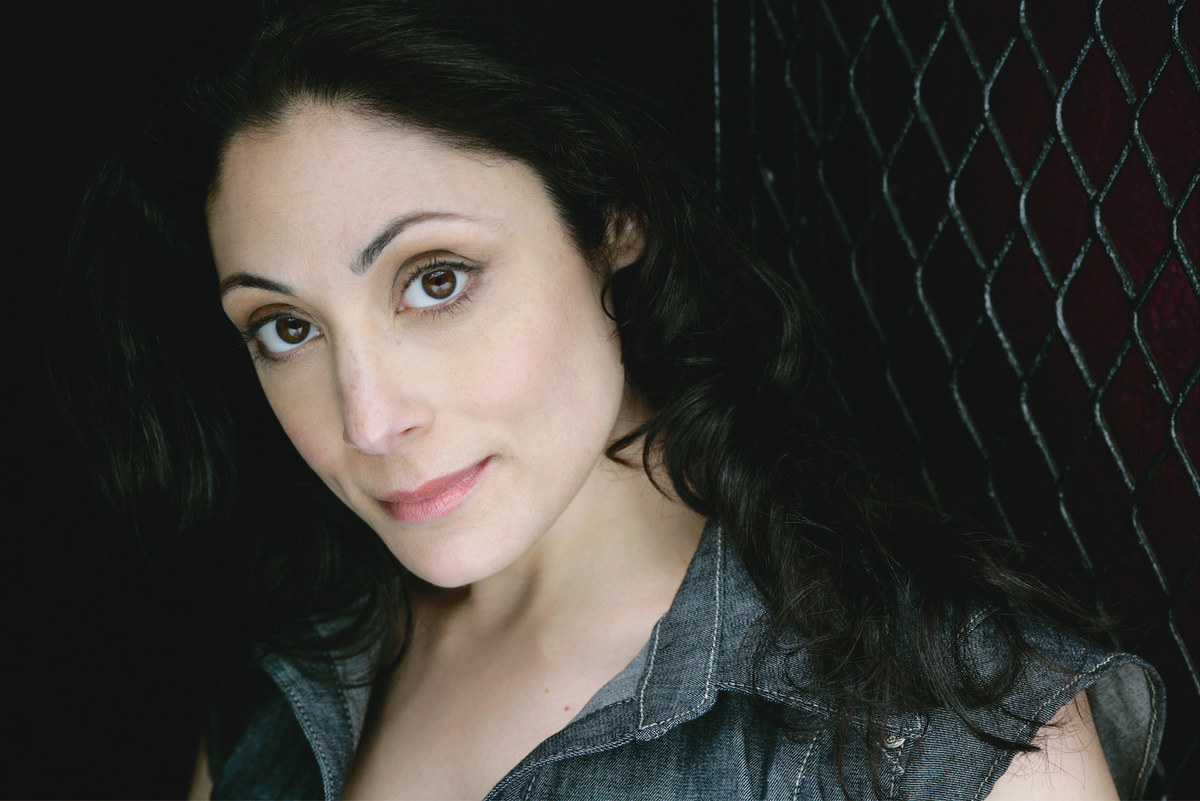
Najla Said, daughter of Palestinian-American author Edward Said. (Supplied)
“A lot of people have said to me, ‘How could you have grown up with this person and been ashamed of being Palestinian?’ But that’s the whole point, because I think people don’t realize that before the last 20 or so years, people in America from other countries would be very uncomfortable revealing their ethnic identity, because the whole idea was to be American and assimilate.”
Today, as an adult woman, she views her father differently.
Said’s magnum opus, “Orientalism,” presented his perspective of how the West had degradingly perceived the East, or “the Orient,” in everything from literary texts to popular representation.
Though it was published in 1978, it remains highly relevant and is required reading for college students in many countries.
Said’s speeches were so captivating that, as one close friend said, “when he spoke, the whole room was just spellbound, not daring to say a word.”
“After 9/11, in the last couple of years of his life, I was really proud to be his daughter. I was old enough to understand,” Najla Said told Arab News.
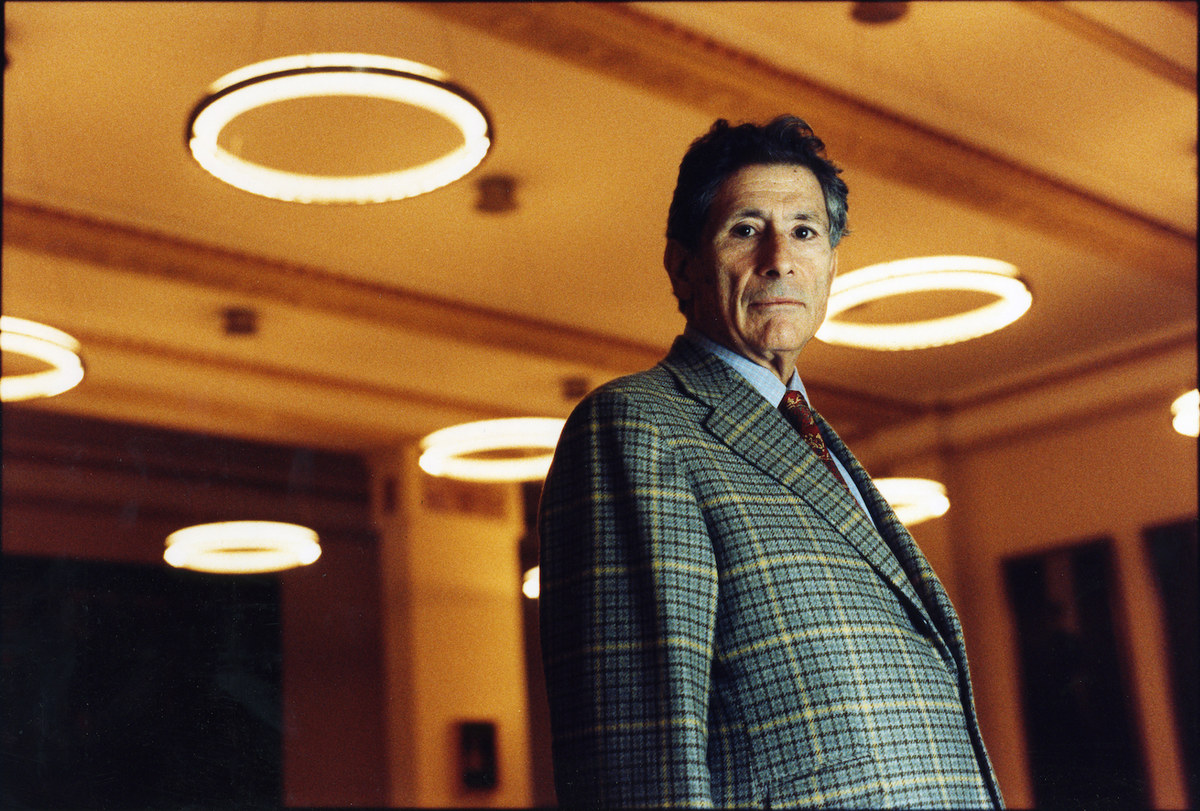
Portrait of the essayist, professor of literature and ex member of the Palestinian National Council Edward Said. (Getty Images)
As his fame grew, so too did the aggression of his critics, she recalls. His life was in danger, subject to death threats, and his office at Columbia University, where he taught for four decades, was once set ablaze.
Said describes her father as “ahead of his time.”
“I think he was saying things people weren’t ready to hear.”
She believes he paved the way for people to openly assert their multi-layered identity. “When I went to college in the early 1990s, when the political correctness movement was just beginning, everyone was saying, ‘I’m African-American, I’m Asian-American.’ He gets the credit for ‘Asian-American’ because he was the one who said, ‘oriental’ is not a good word.”
Najla and Edward are alike in several ways: Like him, she is passionate, temperamental and expressive in her writing. She cherishes some of the moments she shared with her father, including rubbing shoulders with literary giants.
Attending a UNESCO committee in Paris together in 1993, they met the Italian philosopher Umberto Eco and the Colombian novelist Gabriel Garcia Marquez.
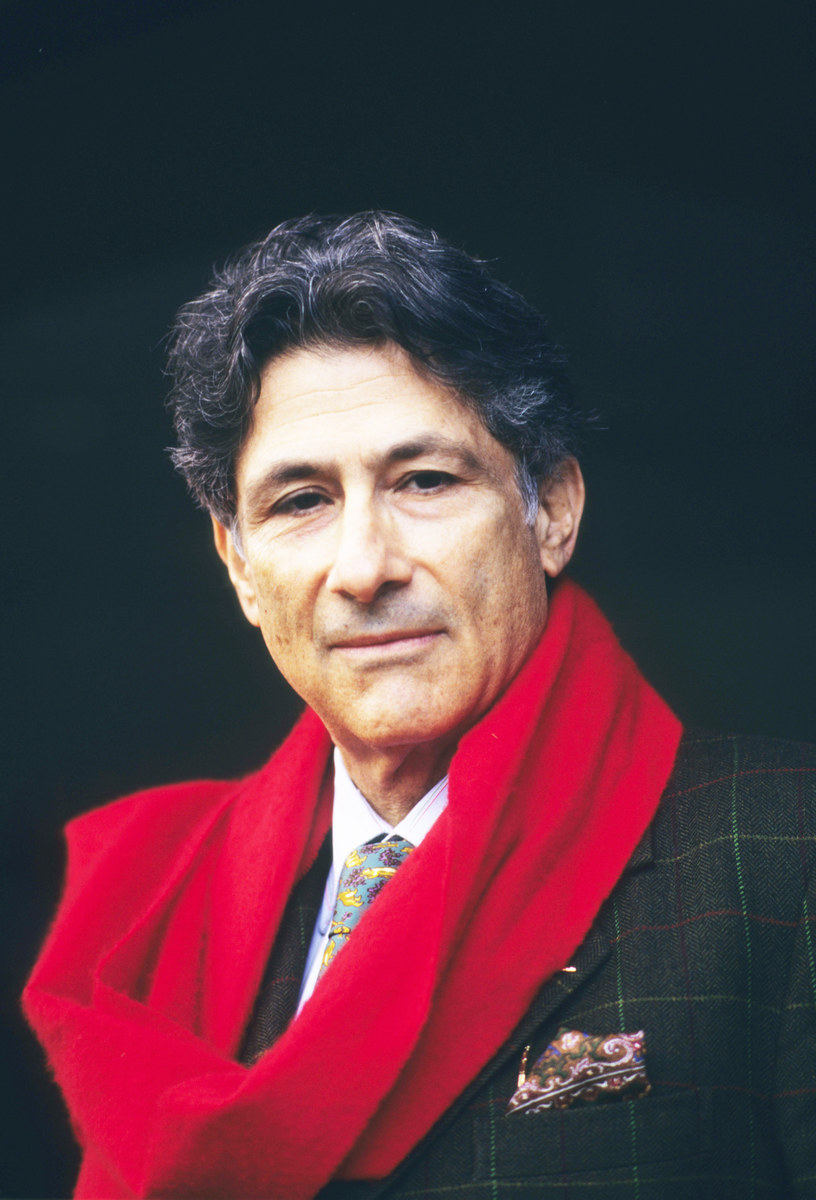
Edward Said, Palestinian writer in Modena, Italy, on 18th Sept. 2001. (Getty Images)
“My dad was parading me around on his arm and Gabriel Garcia Marquez came up to me and asked me, in French, which of his books I’d read, and I said, ‘None of them.’ Marquez said, ‘I can’t believe that girl said that to me,’ and he took me by the arm, saying: ‘I like her!’ My dad felt so proud of me.”
To Najla, her father was a gentleman, a man who loved to puff away on his pipe and listen to Wagner. He collected pens and ties, and his tweed suits were tailored in Savile Row, in London. He was conversational and loyal, but did not mince his words.
Edward Said befriended the Palestinian poet Mahmoud Darwish and disagreed with Yasser Arafat. On air, he challenged television journalists such as Charlie Rose and Tim Sebastian over the Palestinian-Israeli conflict. He did not like pop music, nor the Egyptian singer Umm Kulthum, who he said sounded like she was wailing.
His passion for classical music led him to work with his friend, the veteran Israeli-Argentinian conductor Daniel Barenboim, to establish in 1999 the West–Eastern Divan Orchestra, made up mostly of Arab and Israeli musicians. “He even said, at the end of his life, that the greatest thing he ever did was that orchestra,” said Najla.
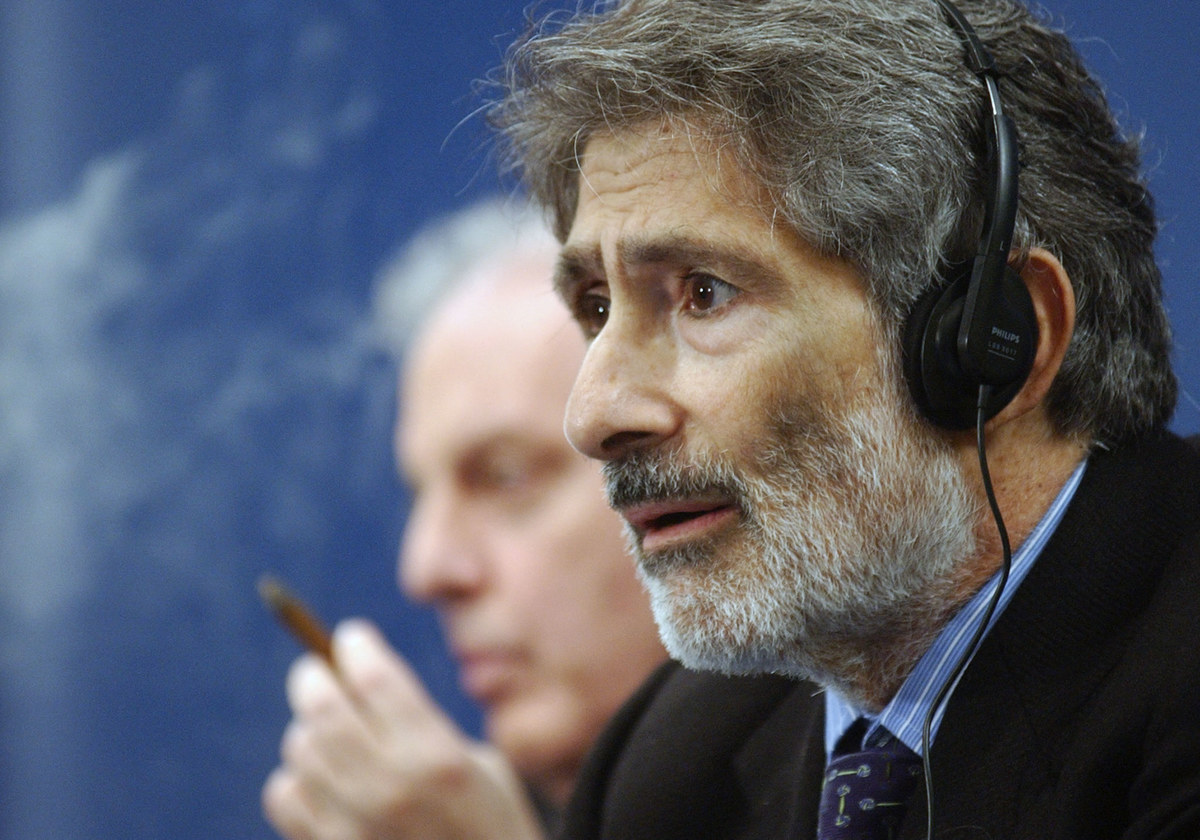
Palestinian writer and scholar Edward Said (R) talks to journalists at a press conference with Israeli conductor and pianist Daniel Barenboim (L) in Oviedo 25 Oct. 2002, after it was announced that they will be awarded the Prince of Asturias Award for Concord 2002, for their joint efforts to promote peace in the Middle East. (File/AFP)
She said her father encouraged her pursuit of the arts and was supportive when she struggled with anorexia, heartbreaks and self-doubt. “I was in college and I had shown him a draft of my senior thesis and said, ‘I’m so dumb’.” In a handwritten note, he responded: “There are a lot of things you are, Naj. Dumb isn’t one of them.”
Najla Said remembers her dad as sweet and loving and a man who always made time for his family. “The only place I ever felt safe was with my mother (Mariam), father and brother (Wadie). It was like us against the world. The idea of ‘home’ is: My family is home,” she said.
To this day, she finds her father’s fame surreal. “I’m still surprised by how many people know who he is,” she said. “I went back to one of my college reunions at Princeton, which is a very white, preppy school, and the kid, a typical American boy, who checked me in said, “What’s your last name?’ and I replied, ‘Said,’ and he goes, ‘Oh, like Edward!’”
He changed how the world approached representation. In 2015, a fashion exhibit entitled ‘China: Through the Looking Glass’ was put on at the Metropolitan Museum, and on the wall at the beginning they flashed up his name. “The people at the museum were like, ‘We have to be careful of how we present,’” she recalled. “I never thought I’d see my dad on the wall of a fashion exhibition.”
The fact that her father remains alive in the hearts of so many has been a source of comfort for Said. “I feel like I’m not alone. If I’m in an unfamiliar place and someone knows who he is, I feel, ‘OK, I’m safe here,’ because someone knows who I am and they’re OK with that.”
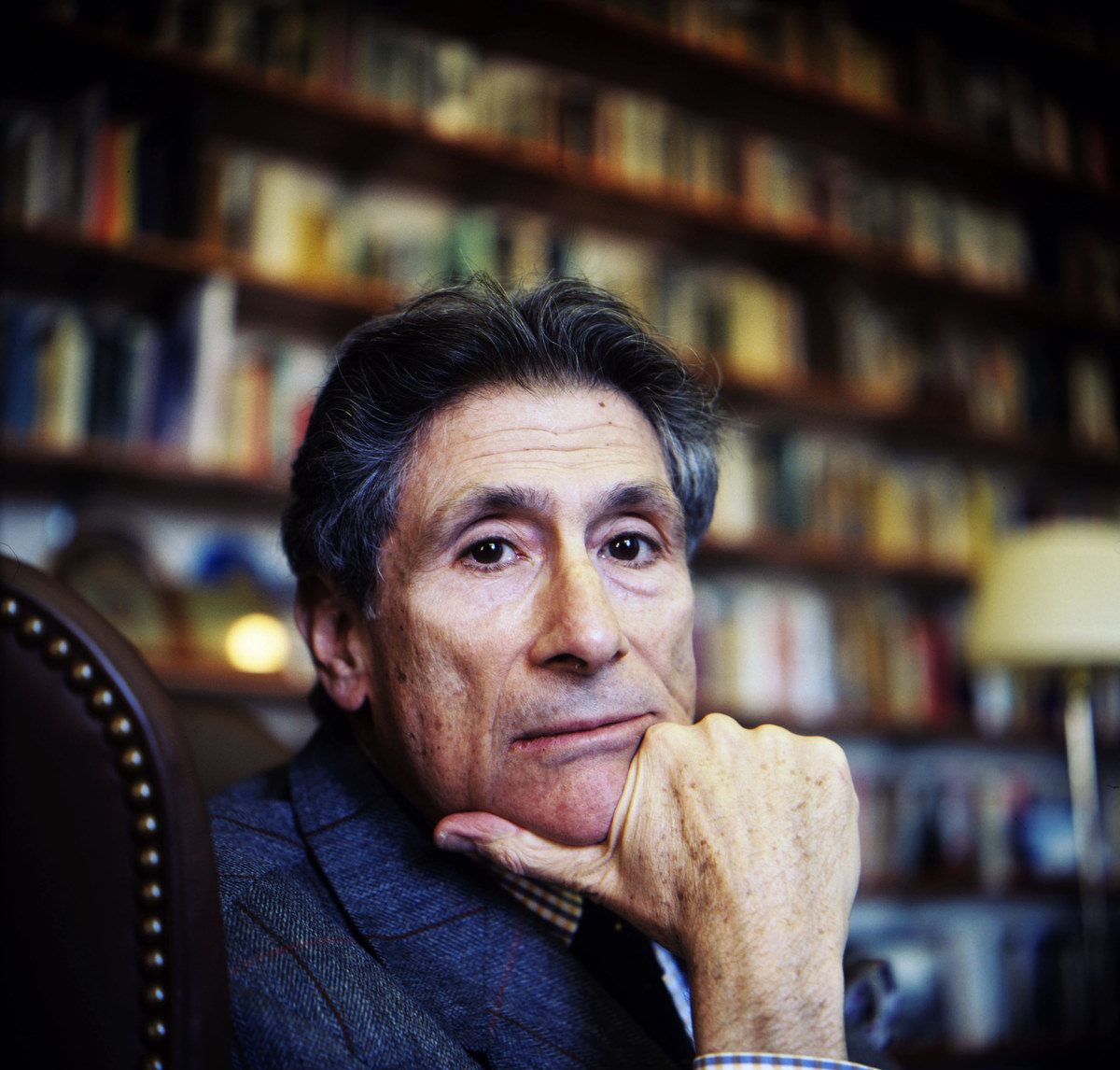
Professor and writer Edward Said poses Feb. 8, 2003 in his office at Columbia University in New York City. (Getty Images)
Najla was only 17 when Said was diagnosed with leukemia in the early 1990s, a battle he fought until his death in 2003, six months after the US invasion of Iraq.
“He used to joke that he ‘took off’ as soon as we invaded Iraq,” she said. “He was like, ‘Ah! I’m done. No one’s listening to me. I’ve got to go.’”
As the disease began to take its toll on Said’s health, he lost weight and his voice became hoarse, his daughter recalled, but “he still had this fire in him.”
Nearly 20 years after his death, Edward Said continues to be an inspiration for marginalized peoples the world over. “What he was saying was basic and universal, and ultimately about humanity,” she said.
Said would have turned 86 on Nov. 1. He loved birthdays and an ideal gift for him was clothing.
On a day that is heavy with emotions for the family, Najla Said has a wish. “At the end of the day, losing a parent is hard,” she said. “I miss him so much, it’s hard to even explain. I was definitely a daddy’s girl and he was my best friend. So, I would say: ‘Please come back. This is nonsense.’”
_______________
• Twitter: @aRTprojectdxb
























